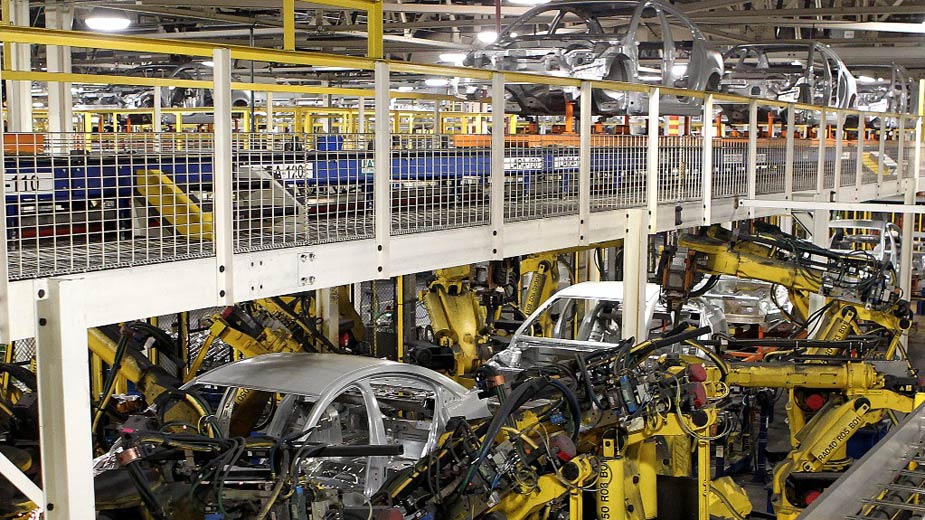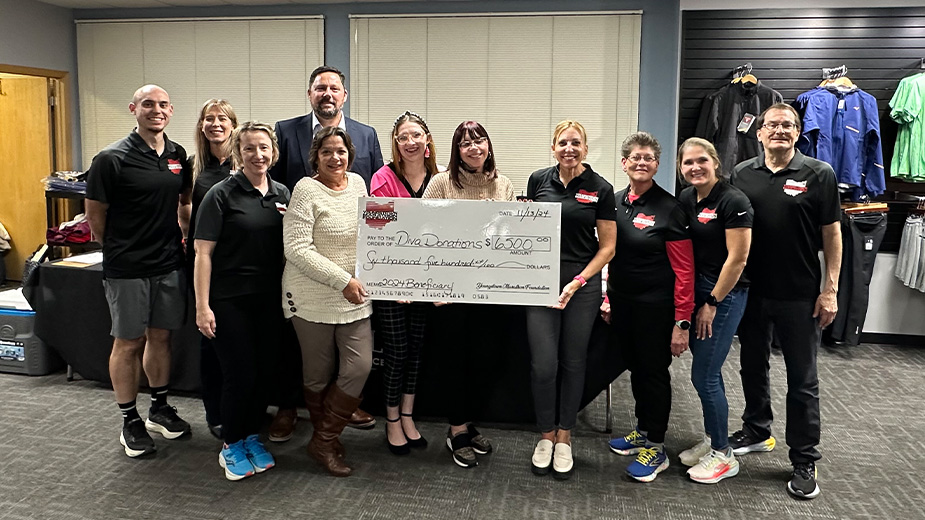As Auto Profits Grow, Labor Union Ranks Shrink
YOUNGSTOWN, Ohio — There is at least one aspect of the automotive industry that both organized labor and management can always agree on: they can’t control the buying whims of the American public.
These trends have a direct impact on employment levels at major manufacturers such as General Motors’ Lordstown plant and automotive suppliers such as Delphi Corp.’s operations in Warren, and thus union membership.
The most critical challenge that confronts locals 1112 and 1714 of the United Auto Workers, which represent the hourly employees at General Motors Co.’s Lordstown complex, along with IUE-CWA Local 717 – which represents hourly workers at nearby Delphi operations – is rebuilding their membership and laying the groundwork for the future of organized labor in the region.
“I’m ready, willing and able to talk to management about hiring new people and growing my membership,” says Brian Lutz, shop chairman of IUE-CWA Local 717. “We still have operations here that we could easily expand.”
Lutz, UAW Local 1112 President Glenn Johnson and UAW Local 1714 President Robert Morales say that while auto sales are healthy, recruiting new members and investment is paramount to ensuring that the area’s unions remain strong for their rank and file and retirees.
Lutz says Delphi’s operations in Trumbull County – which consist mainly of its plant on North River Road in Warren and its high-tech plastics-injection molding plant in Vienna – are vibrant operations that are adapting to customers’ future needs.
Plant 10, for example, housed in the North River Road complex and the oldest at the Warren site, manufactures cable for a host of automotive producers, Lutz says.
“Aluminum cable is coming in at larger volumes every day,” he says. “Over the last five or six years, we’ve been stepping into new frontiers and matching products that meet the future,” supplying cable to customers such as Tesla. And, he says, Delphi’s plastics-injection molding plant in Vienna is among the most modern operation of its kind in the world.
If there is one area in Delphi’s Trumbull County operations in the most need of investment and upgrades, it’s Plant 11, the company’s metal-stamping plant on North River Road.
“I see plant 11 as the one with the most opportunity for improvement and investment,” Lutz says.
A major asset of the plant is its highly skilled tool-and-die makers, who are used across Warren’s operations.
Delphi’s local plants employ between 650 and 700 hourly workers, depending on business volumes, Lutz says.
Although the days of high-wage entry positions are gone – hourly workers can expect to earn $13.50 an hour to start with benefits after 90 days – wages for skilled tradesmen are close to the levels paid before Delphi filed for bankruptcy in 2005.
“Entry level is $25 an hour, and you could earn up to $29 an hour,” Lutz says. “They’re trying to draw talent.”
Roughly 200 members of IUE-CWA are skilled tradesmen, Lutz says. “I wish I could get more leverage with production workers,” he says.
Membership in labor unions that represent workers in the manufacturing sector dropped slightly across the country last year, according to data compiled by the U.S. Bureau of Labor Statistics.
In 2015, manufacturing boasted 1.369 million union members, who made up 9.4% of the manufacturing workforce. In 2016, that number fell to 1.295 million, or 8.8% of the workforce.
Still, organized labor is heartened by record profits and sales across the automobile industry, which trickle down to its membership in the form of profit sharing checks.
In Delphi’s case, the auto supplier posted net income of $281 million for the fourth quarter and net income of $1.15 billion for 2016. “We’re doing well and holding our own here,” Lutz says.
This translates into profit-sharing checks for most of Delphi’s local hourly employees, Lutz says. Those who have accumulated 1,850 hours this year will earn another $1,950 in profit sharing to be paid the last week in March.
Earlier this month, General Motors Co. reported record sales and net income for a single year. In 2016, the auto giant recorded profits of $12 billion for its North American operations. As a result, each of its 52,000 hourly UAW employees will receive profit sharing checks of $12,000.
“It’s very important this time around,” says Morales, whose Local 1714 represents 1,300 workers at Lordstown’s West Plant, often referred to as the metals-stamping plant. “The majority of our members will receive that amount.”
Morales says that the profit sharing checks, the largest in the history of GM, and has an important impact not just on the employees, but the community as well, because much of that money will boost the health of the local economy. And, it’s a signal that labor and management are working with each other more closely than ever.
“At Lordstown, we understand the relationship needs to be there for the business,” he says. “We’re always trying to get better, and it takes both sides to sit down and see how our report card is doing. It’s beneficial for the company and the membership.”
The shift in consumer preferences from small vehicles to larger SUVs and crossovers hit the Mahoning Valley especially hard in January. General Motors Co. placed 835 hourly workers at Lordstown on layoff because of declining sales of the Chevrolet Cruze, which the plant manufactures.
“There’s a sense of unease about the market,” Morales says, citing his membership’s concerns. “We can’t control what people buy.”
Sales of small cars were down across the board last year, and not just at GM, says UAW 1112 President Glenn Johnson. “The buying public has spoken. We’re going to continue to do everything we can at Team Lordstown to either position us for another vehicle or focus on our readiness to move on the market when it rebounds.”
Among his main efforts, Johnson says, is easing the pain of the employees placed on layoff.
“Our main focus is to make the transition for our workers as smooth as possible through re-education and retraining,” he says.
More than 600 of his members – most of whom work in the Lordstown East assembly plant – are on layoff, with about 1,800 active members on the job.
The bottom line for Johnson is to bring good-paying jobs back into the plant, and it’s still too early to assess the impact the policies of the new Trump administration will have on the auto industry.
“Those that supported Trump are cautiously optimistic,” Johnson says, citing the U.S. withdrawal from the unpopular Trans-Pacific Partnership trade agreement and the president’s vow to renegotiate the North American Free Trade Agreement, or Nafta.
“Those resonate well with the auto industry,” Johnson says. “But 140 characters in a tweet is not a trade agreement. Get something done.”
Copyright 2024 The Business Journal, Youngstown, Ohio.



